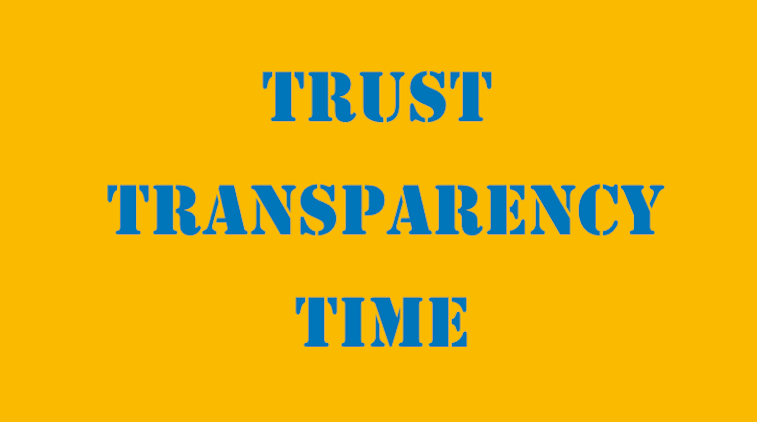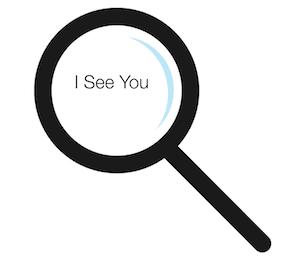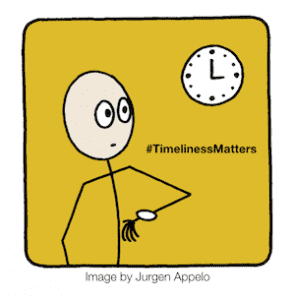Whenever I get an inside view of a company culture, it seems so easy to find the faults. But what of the recipes for success? The bigger question becomes: How to develop a futureproof mindset?
It starts at the top
My first port of call is to see how switched on the C-suite (and especially the CEO) is and how much and how well they embody the “new” and desired culture. The second port of call is to find out about the way communications happen: how much email is unread? how often are the BCC & CC fields used? how timely are communications sent and responded to? what other channels are used? how frank is the discourse? The third port of call regards the level of, what I put under the term of, secrecy. How open and transparent is the company? How much is happening “between the lines” or behind closed doors? How wide are the gulfs between what is communicated inside and outside the company?
The futureproof mindset
I find three traits that spell out how to develop a futureproof mindset.
 Trustworthiness. Although it’s hard to measure trustworthiness, this is something that people at the heart of the organisation either feel or don’t. Is the CEO trustworthy? Is he/she someone you’d like to have at your dinner table? Is he/she someone you’d trust with your personal bank account? In a world where there is so much distrust — by consumers and employees in marketers, executives and business in general — there are certain indicators of trustworthiness. These include what stakeholders — notably employees (even ex employees), customers and suppliers — say about you. One of the key tenets of trustworthiness is around ethics. What do you stand for? Little by little, the inside view of a company is being opened up thanks to social media and sites such as Glassdoor or Meilleure Entreprise.
Trustworthiness. Although it’s hard to measure trustworthiness, this is something that people at the heart of the organisation either feel or don’t. Is the CEO trustworthy? Is he/she someone you’d like to have at your dinner table? Is he/she someone you’d trust with your personal bank account? In a world where there is so much distrust — by consumers and employees in marketers, executives and business in general — there are certain indicators of trustworthiness. These include what stakeholders — notably employees (even ex employees), customers and suppliers — say about you. One of the key tenets of trustworthiness is around ethics. What do you stand for? Little by little, the inside view of a company is being opened up thanks to social media and sites such as Glassdoor or Meilleure Entreprise. Transparency. Sure there are parts of the business (e.g. IP, future R&D) that should be kept under wraps. But it’s not because some areas need to be cordoned off that the remainder of the company must also operate under cloak and veil. For much, if not most of the rest of the business, transparency, collaboration and sharing are key to building trust, community and strong partnerships. An organisation that is not afraid to “put it out there,” embraces transparency. Ones that require rounds of approval for each missive are going to struggle in this more transparent, fast-paced era.
Transparency. Sure there are parts of the business (e.g. IP, future R&D) that should be kept under wraps. But it’s not because some areas need to be cordoned off that the remainder of the company must also operate under cloak and veil. For much, if not most of the rest of the business, transparency, collaboration and sharing are key to building trust, community and strong partnerships. An organisation that is not afraid to “put it out there,” embraces transparency. Ones that require rounds of approval for each missive are going to struggle in this more transparent, fast-paced era. Timeliness. While culture eats strategy for lunch (cf Peter Drucker), execution (which is embedded in culture) is where the proverbial rubber hits the road and how, most emphatically, trust is cultivated. Words promise. Actions deliver.[tweetthis]Words promise. Actions deliver. #mindset[/tweetthis] One of the biggest factors in execution is being on time. It’s part of saying what you do and doing what you say. [tweetthis]One of the biggest factors in execution is being on time. It’s part of saying what you do and doing what you say. #execution[/tweetthis] Much like transparency, being on time, respecting others’ time and delivering on time are key to developing trust with your partners and clients.[tweetthis]Much like transparency, being on time, respecting others’ time and delivering on time are key to developing trust with your partners and clients.[/tweetthis]
Timeliness. While culture eats strategy for lunch (cf Peter Drucker), execution (which is embedded in culture) is where the proverbial rubber hits the road and how, most emphatically, trust is cultivated. Words promise. Actions deliver.[tweetthis]Words promise. Actions deliver. #mindset[/tweetthis] One of the biggest factors in execution is being on time. It’s part of saying what you do and doing what you say. [tweetthis]One of the biggest factors in execution is being on time. It’s part of saying what you do and doing what you say. #execution[/tweetthis] Much like transparency, being on time, respecting others’ time and delivering on time are key to developing trust with your partners and clients.[tweetthis]Much like transparency, being on time, respecting others’ time and delivering on time are key to developing trust with your partners and clients.[/tweetthis]
Your thoughts on this futureproof mindset?


 Trustworthiness. Although it’s hard to measure trustworthiness, this is something that people at the heart of the organisation either feel or don’t. Is the CEO trustworthy? Is he/she someone you’d like to have at your dinner table? Is he/she someone you’d trust with your personal bank account? In a world where there is so much distrust — by consumers and employees in marketers, executives and business in general — there are certain indicators of trustworthiness. These include what stakeholders — notably employees (even ex employees), customers and suppliers — say about you. One of the key tenets of trustworthiness is around ethics. What do you stand for? Little by little, the inside view of a company is being opened up thanks to social media and sites such as Glassdoor or Meilleure Entreprise.
Trustworthiness. Although it’s hard to measure trustworthiness, this is something that people at the heart of the organisation either feel or don’t. Is the CEO trustworthy? Is he/she someone you’d like to have at your dinner table? Is he/she someone you’d trust with your personal bank account? In a world where there is so much distrust — by consumers and employees in marketers, executives and business in general — there are certain indicators of trustworthiness. These include what stakeholders — notably employees (even ex employees), customers and suppliers — say about you. One of the key tenets of trustworthiness is around ethics. What do you stand for? Little by little, the inside view of a company is being opened up thanks to social media and sites such as Glassdoor or Meilleure Entreprise. Transparency. Sure there are parts of the business (e.g. IP, future R&D) that should be kept under wraps. But it’s not because some areas need to be cordoned off that the remainder of the company must also operate under cloak and veil. For much, if not most of the rest of the business, transparency, collaboration and sharing are key to building trust, community and strong partnerships. An organisation that is not afraid to “put it out there,” embraces transparency. Ones that require rounds of approval for each missive are going to struggle in this more transparent, fast-paced era.
Transparency. Sure there are parts of the business (e.g. IP, future R&D) that should be kept under wraps. But it’s not because some areas need to be cordoned off that the remainder of the company must also operate under cloak and veil. For much, if not most of the rest of the business, transparency, collaboration and sharing are key to building trust, community and strong partnerships. An organisation that is not afraid to “put it out there,” embraces transparency. Ones that require rounds of approval for each missive are going to struggle in this more transparent, fast-paced era. Timeliness. While culture eats strategy for lunch (cf Peter Drucker), execution (which is embedded in culture) is where the proverbial rubber hits the road and how, most emphatically, trust is cultivated. Words promise. Actions deliver.[tweetthis]Words promise. Actions deliver. #mindset[/tweetthis] One of the biggest factors in execution is being on time. It’s part of saying what you do and doing what you say. [tweetthis]One of the biggest factors in execution is being on time. It’s part of saying what you do and doing what you say. #execution[/tweetthis] Much like transparency, being on time, respecting others’ time and delivering on time are key to developing trust with your partners and clients.[tweetthis]Much like transparency, being on time, respecting others’ time and delivering on time are key to developing trust with your partners and clients.[/tweetthis]
Timeliness. While culture eats strategy for lunch (cf Peter Drucker), execution (which is embedded in culture) is where the proverbial rubber hits the road and how, most emphatically, trust is cultivated. Words promise. Actions deliver.[tweetthis]Words promise. Actions deliver. #mindset[/tweetthis] One of the biggest factors in execution is being on time. It’s part of saying what you do and doing what you say. [tweetthis]One of the biggest factors in execution is being on time. It’s part of saying what you do and doing what you say. #execution[/tweetthis] Much like transparency, being on time, respecting others’ time and delivering on time are key to developing trust with your partners and clients.[tweetthis]Much like transparency, being on time, respecting others’ time and delivering on time are key to developing trust with your partners and clients.[/tweetthis]








